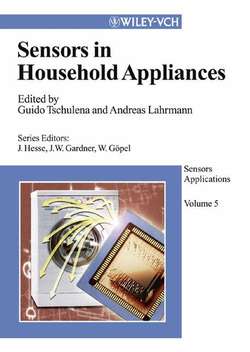Описание книги
This book provides both engineers and scientists with a competent and comprehensive survey on the different types of sensors currently applied in modern electronic household devices, their strengths, weaknesses and the reason for using them in which subsystem. More and more microelectronics are establishing themselves in all aspects of our daily life, and the use of a growing number of increasingly sophisticated, low-cost sensors is directly linked to this trend, and they are responsible for many of the technical achievements of the last decades. Their use in modern washing machines, dish washers, dryers, freezers as well as in cooking, domestic heating, air conditioning or small appliances results in reduction of electricity, water or detergent consumption, less noise emission, increased efficiency and higher user comfort. Market data is given, demonstrating the increasing demand for large quantities of suitable, reliable sensor systems, and the subsequent growing need for comprehensive information on their potentials and limitations. Exemplary products, new types of appliances and improved electronic control are presented. Chapters on thin film temperature sensors, Reed switches, gas sensors, UV sensors, acceleration and pressure sensors illustrate the utilization of modern device mass fabrication technologies. Finally, an outlook into the future forecasts the needs of the appliances of the coming decade.
